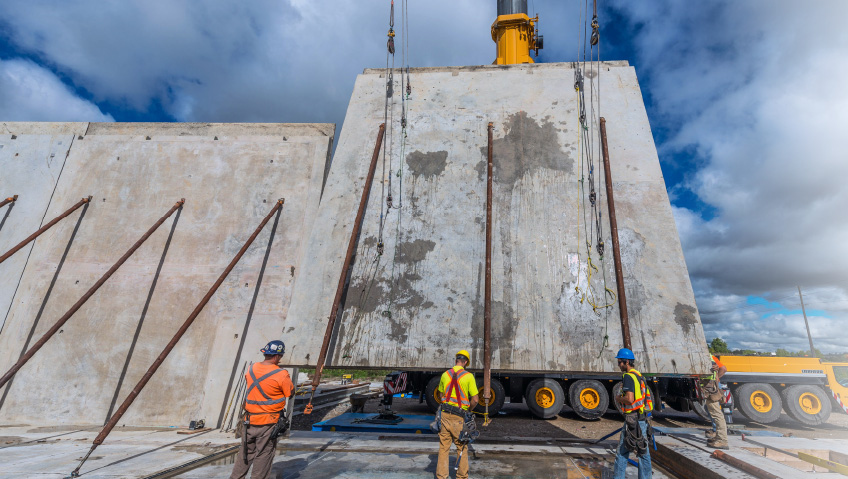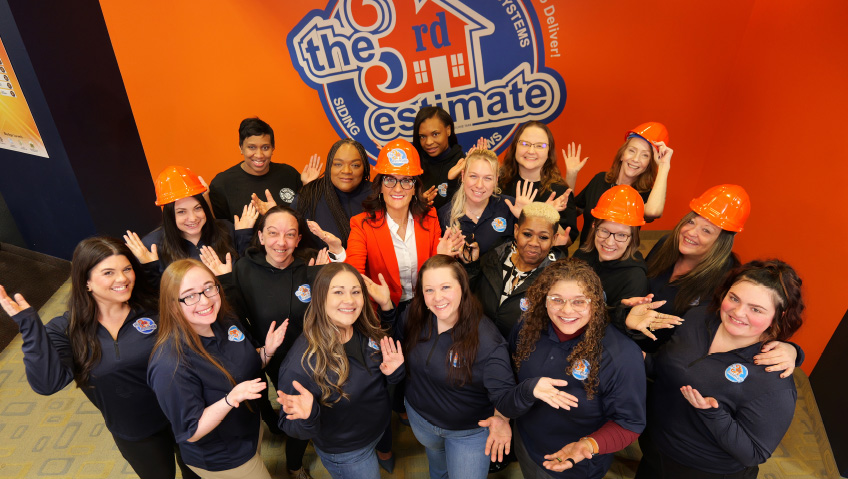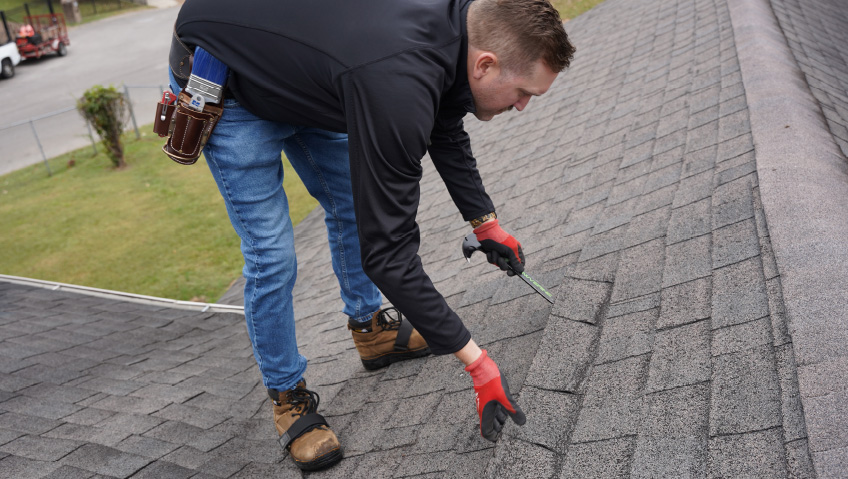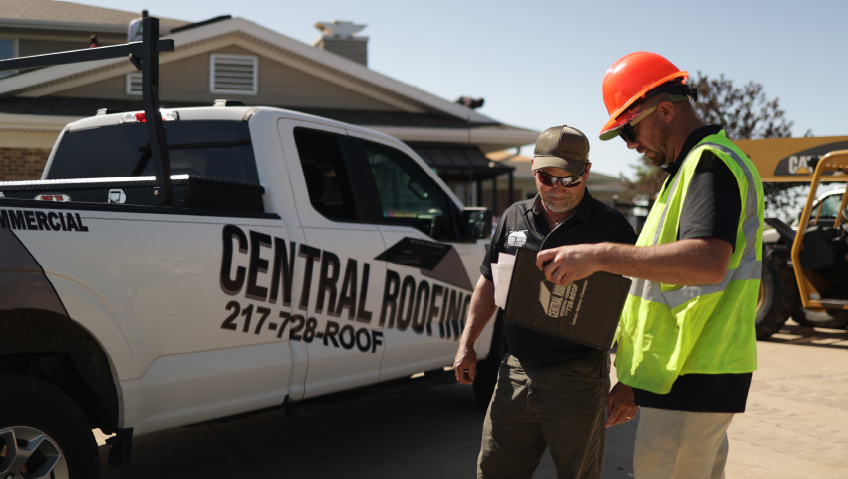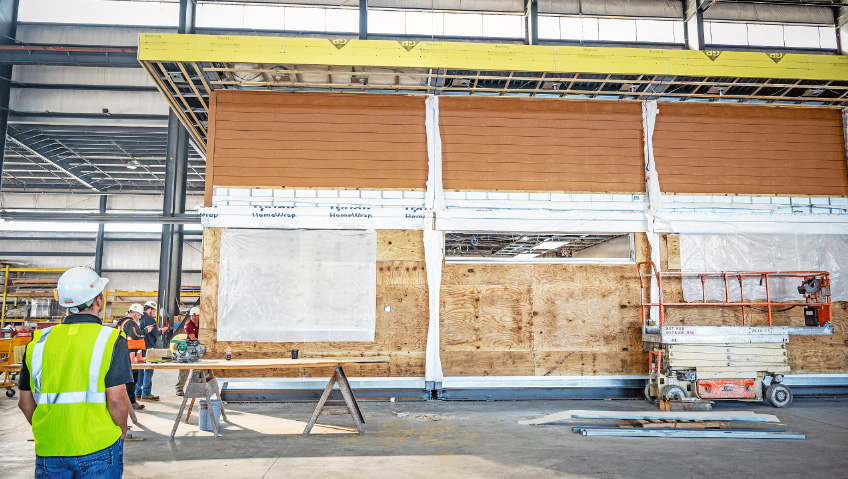As a child, Justin Stein knew he would dedicate his life to the construction industry. The son of an owner of a light commercial concrete company in Kansas, young Justin learned how to pour concrete for parking lots, garages, driveways, metal building foundations, and house additions.
“We used to get concrete finishing tools for Christmas. That was always a nice surprise,” he says.
Respecting his father’s skills and strong work ethic, Justin knew he’d travel a similar career path, with one exception: the projects he would oversee would be much larger.
In 2001, Stein was one of the first set of three interns at Denver-based Concrete Frame Associates (CFA). Familiar with Colorado from family ski trips over the years, the opportunity was a dream come true. CFA was happy with his work and offered him a full-time position after he completed his studies in Construction Science and Management with a minor in business. Two years later, after graduating with his Bachelor of Science from Kansas State University, Stein started with CFA as a project engineer, working his way up to Vice President of Operations.
Nothing left to chance
When he became Concrete Frame Associates’ President in January 2020, Stein was excited, with good reason. The company had a record 2019 and looked forward to an even better year. Three months later, however, COVID hit, and the world practically ground to a standstill in mere days.
“Everything turned upside down, and it was a whole lot different than anticipated,” he says. Although CFA was deemed essential and the team never stopped working, there was a definite impact on business. Some projects contracted, others were shelved, and a few—including the large concourse expansion at Denver International Airport—were crucial and kept going. And even though CFA’s office shut down for about eight weeks, Stein and others on his team came in every day. “We were lucky to be considered essential and to continue to keep the doors open and keep working through all that,” he shares.
Operating throughout Rocky Mountain West, CFA takes on concrete projects in Colorado, New Mexico, and Wyoming. Active in the multifamily, office space, and hospitality sectors, the company’s turnkey solutions encompass pre-construction planning, and construction/operations. These include design assistance, forming system selection, structural system selection, budget and schedule development, and constructability support, to name a few.
To ensure successful projects from the start, CFA uses Revit to create pre-construction line drawings. CFA’s project engineers take these structural and architectural drawings and create 3D models before any concrete is poured.
As the largest concrete-former construction company in Colorado, some assume Concrete Frame Associates takes only big commercial concrete jobs. This isn’t the case, according to Stein. “We do anything from $50,000 and $100,000 up to $30 million. If it’s concrete and needs to be formed, or is elevated off the ground, those are the types of jobs we want to do.”
A strong team
At CFA, all work is assigned to a trained project team. This includes a project manager, project engineer, superintendent, and the field team. And if the company is performing a turnkey job—or as they call it in the market, a frame project where they are carrying the concrete for the package—a field engineer is added to the team.
With a team of about 350, labor represents CFA’s biggest investment. With an in-house labor tracking system, the company manages and monitors labor productivity. CFA also uses a short-interval planning (SIP) program. This helps assess what work needs to be done in the coming week, and what staff are required. “If our SIP says we need 20 people and we’ve got 25, we’d better execute more work or cut loose five guys,” says Stein. “So we track labor extremely closely on our end.” Managing project schedules closely, the company works hand-in-hand with clients to measure progress, hit certain deadlines, ensure they have enough workers, and track productivity and costs.
“The goal is to continue to grow, year by year,” Stein says, and the company, like all construction firms at the moment, faces challenges in finding staff. “It takes a very specific person who wants to do this type of work,” he says. “Day-in, day-out, it’s always going to be an issue when it comes to this type of blue-collar work. It’s about the elements: it’s hot, it’s cold, it’s rainy, it’s snowy.” By using productivity tools and creating better processes, the company is able to do more with less.
Safety first
Although safety measures have always been important, CFA made a company-wide shift in its philosophy of safety about seven years ago, stepping up its commitment to a safer workplace. “We’re proud of how far we’ve come with our safety numbers and metrics,” says Stein.
Last year, CFA finished with an impressive, world-class Total Recordable Incident Rate (TRIR) of 0.79. “For the type of work we do, the industry average is between four and six, so for us to finish below one is outstanding,” says Stein. “In the previous four years, we had finished in the twos. We are extremely proud of what we’ve done in the last five years when it comes to safety.”
Along with a six-member-strong safety team—a Director of Safety with five Safety Managers under him—the company provides all personal protective equipment (PPE) for staff. While this might seem standard, the quality and comfort of the company’s harnesses and other PPE are top-notch. “We know there are cheaper ones out there, but we want our people to feel comfortable working day-in and day-out.”
This commitment extends to other safety gear as well. Soon after becoming President, Stein pushed a “hand safety” initiative, knowing the most injured parts of the body are fingers and hands. This initiative included hand placement and hand awareness, with the company providing a variety of gloves, including cut-resistant, impact-resistant, and gloves for warm or cold weather.
“We spend a fortune every year on gloves, but we know it’s the most important thing we can do to protect our employees,” he says. “It’s become part of our business structure, how we look at safety, organize it, and treat it. We want to have the same numbers every year and continue to go forward.”
All projects are audited every month by safety team members, and CFA has a top-down approach where project managers, project engineers, and safety specialists review jobs and make sure they are getting all necessary information to their workers. “It’s important we treat [safety] at a high level,” says Stein.
Shaping the community
Over more than 30 years in business, CFA has been an integral part of many projects that define the Colorado skyline. These include the Four Seasons Hotel, the twin 35-story Country Club Towers luxury apartments, and the Westin Hotel near the Denver International Airport. For the new Colorado State University (CSU) football stadium, the company took on the challenge of creating large concourses for fans to walk around, high decks, and other intricate work.
But it’s not all about work and nothing but at CFA. About six years ago, the company took note of the various fundraisers and community service events being promoted by its customers. Participating in these events, CFA asked itself why it wasn’t doing something similar in-house.
This led to internal efforts helping charities, often those benefiting kids such as building bicycles, and the creation of the “It’s Not About…” annual fundraiser. “In the past two years, the company has invited our industry partners to become part of our group, including general contractors, suppliers, and vendors. Last year, CFA raised money for the Children’s Hospital in Denver; this year, efforts will go toward another group to help them get their foundation off the ground.”
Growth ahead
In the years to come, Stein sees Concrete Frame Associates continuing to grow. Among its services, the company has rebar and shotcrete operations and is investigating other product lines. Presently, CRA plans to continue to expand the organization within Colorado, New Mexico, and Wyoming, doing more volume than before, and targeting Southern Colorado, mountain areas, Northern Colorado, and other geographic markets that make sense.
“We have a plan over several years to grow the organization to a certain metric when it comes to financial numbers and financial goals,” he says. “Once we get to that, we will be looking to plant our flag somewhere else.”


